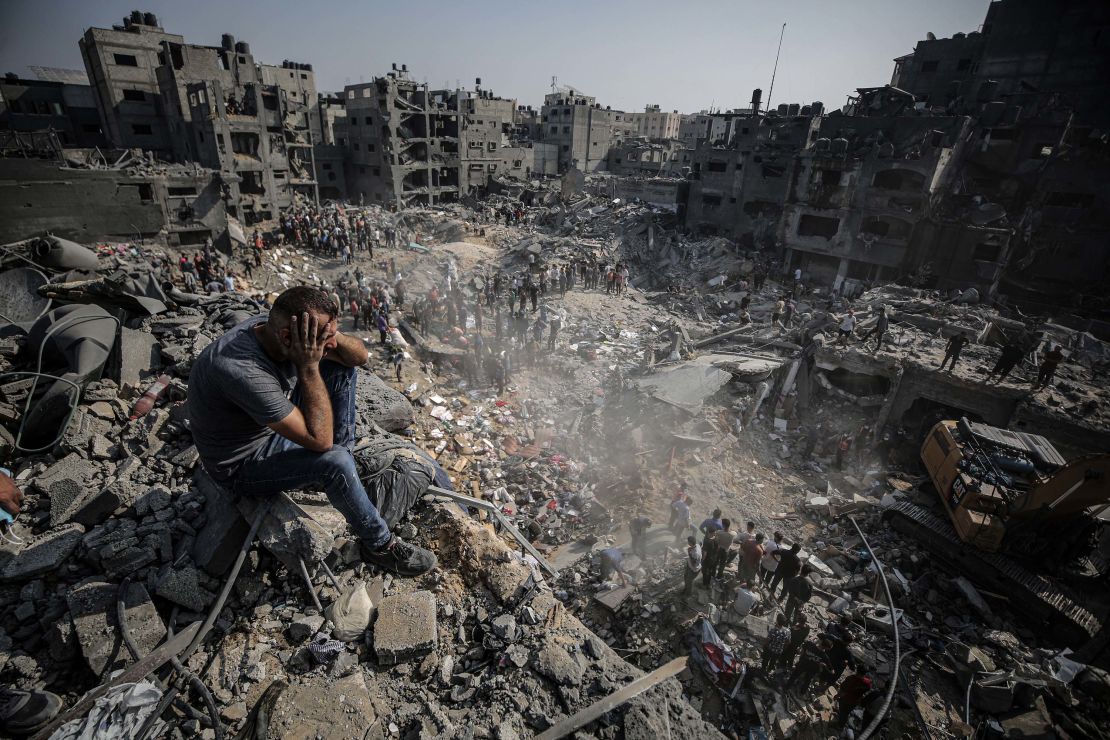
Gazans are forced to live in bombed-out buildings or camp next to giant piles of trash, a United Nations spokeswoman said Friday, denouncing the “unbearable” conditions in the besieged territory.
Louise Wateridge from UNRWA, the UN agency supporting Palestinian refugees, described the “extremely dire” living conditions in the Gaza Strip.
“It’s really unbearable,” she told reporters in Geneva, via video link from central Gaza.
Wateridge, who returned Wednesday after four weeks outside the territory, said that even in that time the situation had “significantly deteriorated”.
“Today, it has to be the worst it’s ever been. I don’t doubt that tomorrow again will be the worst it’s ever been,” she said.
Nearly nine months into the war between Israel and Hamas, Wateridge said the Gaza Strip had been “destroyed”.
She said she had been “shocked” on returning to Khan Yunis in central Gaza.
“The buildings are skeletons, if at all. Everything is rubble,” she said.
“And yet people are living there again.
“There’s no water there, there’s no sanitation, there’s no food. And now, people are living back in these buildings that are empty shells,” with sheets covering the gaps left by blown-out walls.
With no bathrooms, “people are relieving themselves anywhere they can”.
‘Adding misery’
The war in Gaza started with Hamas’s October 7 attack on southern Israel, which resulted in the deaths of 1,195 people, mostly civilians, according to an AFP tally based on Israeli figures.
Israel’s retaliatory offensive has killed more than 37,700 people, also mostly civilians, according to data from the health ministry in Hamas-run Gaza.
Wateridge said the struggle to bring fu el into Gaza and distribute it safely was having a knock-on impact on the ability to deliver aid.
“Without the fuel, the humanitarian response really grinds to a halt,” she said.
Wateridge was speaking from a guesthouse as there was no fuel to go out and undertake missions.
About 150 metres away, she said, a pile of around 100,000 tonnes of waste was building up, with makeshift tents pitched all around it.
“The population is living among it,” she said. “With the temperatures rising, it’s really adding misery to the living conditions.”
